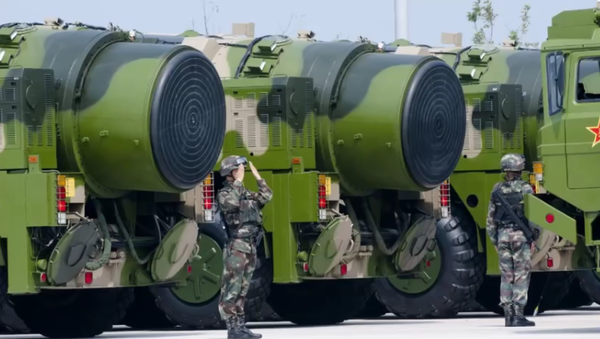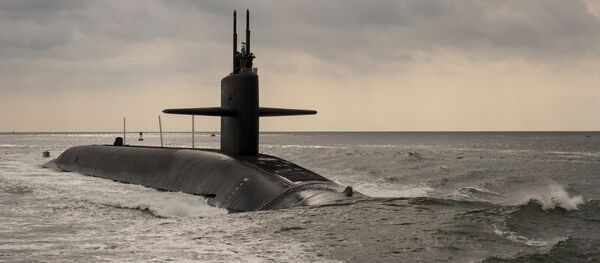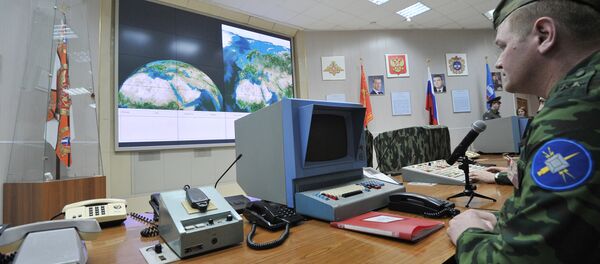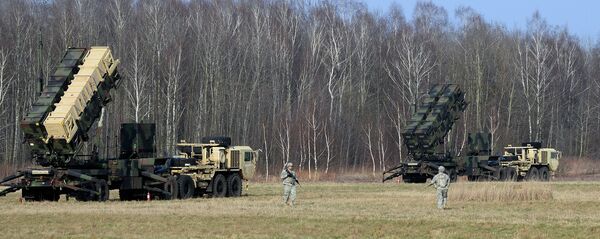According to information from the US military, unlike the previous versions of the SM-3 missile, the SM-3 Block IIA is capable of intercepting not only middle-range missiles but also intercontinental ballistic missiles (ICBM).
Russia began developing anti-missile defense measures in advance. Russia’s main advantages are a rich and advanced arsenal of nuclear weapons delivery, an immense territory and geographical proximity to the US. Due to these factors, missile defenses of the US and its Asian allies cannot intercept Russian missiles at launch. As for the European missile shield, it covers only a small part of the Russian strategic arsenal.
In the light of the ongoing expansion of the US’ missile defense, China’s intercontinental ballistic missile arsenal may be insufficient to guarantee a retaliatory strike.
"Beijing should also take into account the upcoming deployment of US THAAD missile systems to South Korea and Japan," Kashin commented to Sputnik Chinese.
The expert also noted that taking into the account the scope of US and Japanese missile defense efforts, it is "ridiculous" to justify the initiative with possible threats from South Korea or Iran.
"Iran doesn’t have nuclear weapons and is unlikely to develop an ICBM in the foreseeable future. As for North Korea, due to the lack of resources and technologies, it has a small arsenal of faulty ballistic missiles," Kashin pointed out.
The main goal of the US’ missile defense deployment plan is to gain an advantage over Russia and, what is more important, to gain the upper hand over China’s nuclear arsenal.
"Washington believes that this would force Beijing abandon its hardline foreign policy strategy aimed at protecting national interests. However, such an assumption is based on underestimating China’s capabilities to expand its nuclear arsenal," the expert pointed out.
"Deployment of DF-41 missiles and tests of the DF-5C carrying 10 warheads prove that China is capable of rapidly modernizing its offensive potential. Possibly, its will expand even faster than US missile defense aimed at deterring China. In this case, none of the sides will get the upper hand, but global security will be damaged," Kashin concluded.
Never miss a story again — sign up to our Telegram channel and we'll keep you up to speed!





